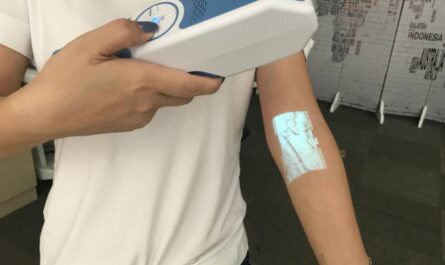
Antibody drug conjugates consist of monoclonal antibodies bonded to cytotoxic chemicals aimed at treating cancer. ADCs help deliver cell-killing medications directly to tumor cells while minimizing harmful impact on healthy cells. The specificity of antibodies ensures targeted delivery of therapeutics to disease sites, helping improve treatment efficacy and reduce side effects. The growing demand for targeted therapies to treat cancer is a key driver of the ADC market.
The global Antibody Drug Conjugates market is estimated to be valued at US$5.38 Billion in 2024 and is expected to exhibit a CAGR of 14. % over the forecast period 2023 to 2030.
Key Takeaways
Key players operating in the Antibody Drug Conjugates are AstraZeneca PLC, Daiichi Sankyo Company, Limited, Novasep, ADC Therapeutics SA, Alentis Therapeutics AG, F. Hoffmann-La Roche, Gilead Sciences, Inc., AbbVie Inc., Biosion USA, Inc., Astellas Pharma Inc., Duality Biologics (Suzhou) Co. Ltd., BioNTech SE, LaNova Medicines Ltd., Bliss Biopharmaceutical, Eisai Co., Ltd., ProfoundBio, Pfizer, Inc., ImmunoGen Inc., Mersana Therapeutics Inc., Sorrento Therapeutics Inc., Oxford BioTherapeutics Ltd, and Takeda Pharmaceutical Company Ltd. Key players are investing heavily in R&D to develop ADC compounds with improved efficacy and safety.
The growing prevalence of cancer types amenable to ADC treatment presents a major opportunity. According to estimates, cancer incidence worldwide is expected to rise to 29.5 million new cases in 2040 from 19.3 million in 2020. This demand will drive uptake of ADC therapeutics.
ADCs offer advantages of targeted localized delivery over conventional cancer drugs. Major pharmaceutical players are expanding global manufacturing and commercialization of approved ADCs. Regional collaborations are also increasing to promote clinical research and availability of ADC treatment options.
Market Key Trends
One key trend in the ADC market is the development of site-specific conjugation technologies for ADCs. Earlier random conjugation of highly potent drugs to antibodies led to drug-to-antibody ratio heterogeneity and suboptimal results. Newer site-specific techniques help consistent conjugation of uniform drug loads, improving homogeneity, pharmacokinetics and efficacy of ADCs compared to earlier generations. This technology augmentation is expected to accelerate approval and adoption of novel ADC candidates.
Porter’s Analysis
Threat of new entrants: High capital requirements for R&D and manufacturing facilities pose significant barriers to entry.
Bargaining power of buyers: The presence of many substitute products limits the bargaining power of individual buyers in this market.
Bargaining power of suppliers: Strict regulations ensure that suppliers of raw materials have limited bargaining power.
Threat of new substitutes: Continuous innovation and research are resulting in new alternative treatment options.
Competitive rivalry: The market is highly competitive due to presence of many global and regional players.
Geographical Regions
North America dominates the market currently, accounting for approximately 35% of the global value share in 2024, due to presence of key market players and rising cancer prevalence in the US and Canada.
Asia Pacific is poised to be the fastest growing regional market between 2023-2030 with a CAGR of over 16% due to increasing healthcare investments, growing disposable incomes, and rising awareness about early cancer diagnosis and treatment in China, India, and other developing countries.
*Note:
- Source: Coherent Market Insights, Public sources, Desk research
- We have leveraged AI tools to mine information and compile it



